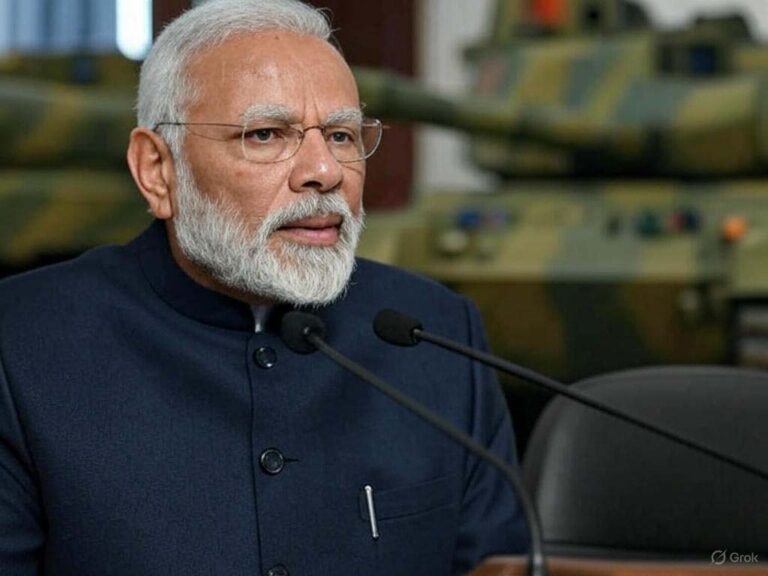Operation Sindoor Live Updates: India Denies Face-Saving Exit to Pak Army Chief Asim Munir
 In a decisive escalation of its anti-terrorism campaign, India has launched Operation Sindoor, a meticulously planned military operation targeting terrorist infrastructure in Pakistan and Pakistan-occupied Kashmir (PoK). Triggered by the brutal Pahalgam terror attack on April 22, 2025, which killed 26 civilians, the operation underscores India’s unwavering resolve. A senior Indian official declared, “India denies face-saving exit to Pak Army Chief Asim Munir,” directly implicating General Asim Munir in orchestrating cross-border terrorism and signaling India’s refusal to offer him diplomatic reprieve.
In a decisive escalation of its anti-terrorism campaign, India has launched Operation Sindoor, a meticulously planned military operation targeting terrorist infrastructure in Pakistan and Pakistan-occupied Kashmir (PoK). Triggered by the brutal Pahalgam terror attack on April 22, 2025, which killed 26 civilians, the operation underscores India’s unwavering resolve. A senior Indian official declared, “India denies face-saving exit to Pak Army Chief Asim Munir,” directly implicating General Asim Munir in orchestrating cross-border terrorism and signaling India’s refusal to offer him diplomatic reprieve.
Operation Sindoor: Precision Strikes Against Terror
Operation Sindoor commenced on May 7, 2025, with the Indian Armed Forces executing surgical strikes on 11 terrorist camps across the border. Named after the red vermillion symbolizing strength, the operation utilized Rafale jets, BrahMos missiles, and advanced drones to dismantle bases operated by groups like Hizbul Mujahideen and Lashkar-e-Taiba. The strikes, conducted without violating Pakistani airspace, targeted ammunition depots and training facilities. Defence Minister Rajnath Singh emphasized, “Operation Sindoor is a testament to India’s zero-tolerance policy against terrorism.”
The operation has been widely supported domestically. Leaders across political lines, including BJP’s Amit Shah and opposition figures like Priyanka Gandhi, have lauded the armed forces’ precision. Public sentiment on X reflects pride, with users posting, “Operation Sindoor shows India’s strength in protecting its sovereignty.” The operation’s strategic execution has minimized civilian casualties while maximizing damage to terror networks.
Operation Sindoor: Pakistan’s Response and India’s Robust Defense
Pakistan retaliated to Operation Sindoor with attempted drone and missile strikes on Indian military installations in Jammu, Punjab, and Srinagar on May 7-8, 2025. India’s state-of-the-art defense systems, including the S-400 and DRDO’s anti-drone technology, neutralized these threats effectively. In a counterstrike, India destroyed a Pakistani radar station near Rawalpindi and downed two Pakistani jets, including a Chinese-origin JF-17, reinforcing its military dominance.
Reports of explosions near General Asim Munir’s residence in Islamabad have fueled speculation of internal instability in Pakistan. Pakistan’s aggressive shelling along the Line of Control resulted in the martyrdom of Indian soldier Naik Bhupendra Singh. India has maintained a restrained yet firm stance, with the Ministry of External Affairs stating, “We seek de-escalation, but Pakistan must stop supporting terrorism.”
Operation Sindoor: India Denies Face-Saving Exit to Asim Munir
India’s accusation against Pak Army Chief Asim Munir centers on his alleged role in the Pahalgam attack. As former ISI chief during the 2019 Balakot crisis, Munir is believed to have deep ties with terror outfits. His recent inflammatory remarks, calling for “jihad against India,” have been condemned by India as “dangerous and divisive.” A senior Army officer’s statement, “India denies face-saving exit to Pak Army Chief Asim Munir,” reflects India’s intent to pressure Pakistan’s military leadership without offering concessions.
Unverified reports on X suggest Munir faces internal dissent, with some claiming he was briefly detained by rival generals. Posts like “Munir’s policies have isolated Pakistan globally” indicate growing frustration. If these reports hold, Operation Sindoor may have exposed vulnerabilities in Pakistan’s military hierarchy, further weakening Munir’s position.
Operation Sindoor: International Reactions and Diplomatic Maneuvers
Operation Sindoor has resonated globally. The US, through Senator Marco Rubio, urged Pakistan to refrain from escalation, warning that support for terrorism would invite sanctions. Australian MP Andrew Charlton praised India’s “measured response,” while the EU issued a statement supporting India’s right to self-defense. India’s diplomatic efforts, including briefing foreign envoys and suspending the Indus Waters Treaty, aim to isolate Pakistan economically and politically.
India has also pressed the IMF to reconsider financial aid to Pakistan, arguing that funds are diverted to military and terror activities. External Affairs Minister S. Jaishankar stated, “Operation Sindoor is not just India’s fight but a global stand against terrorism.” These moves have put additional pressure on Asim Munir’s leadership.
Operation Sindoor: The Path Forward: India’s Unyielding Stance
As Operation Sindoor progresses, India has heightened security measures, with airports on high alert and naval deployments in the Arabian Sea targeting Pakistani maritime assets. Prime Minister Narendra Modi’s consultations with military chiefs underscore the government’s proactive approach. The operation has also sparked a national conversation about long-term security, with experts advocating for sustained pressure on Pakistan.
By declaring that “India denies face-saving exit to Pak Army Chief Asim Munir,” the government has made it clear that accountability is non-negotiable. Operation Sindoor stands as a defining moment, showcasing India’s military might, diplomatic acumen, and unwavering commitment to eradicating terrorism, ensuring that those who threaten its peace face unrelenting consequences.
#WATCH | Remnants of a missile fired by Pakistan found in Punjab's Hoshiarpur pic.twitter.com/20tCMwVdXA
— ANI (@ANI) May 9, 2025

























+ There are no comments
Add yours